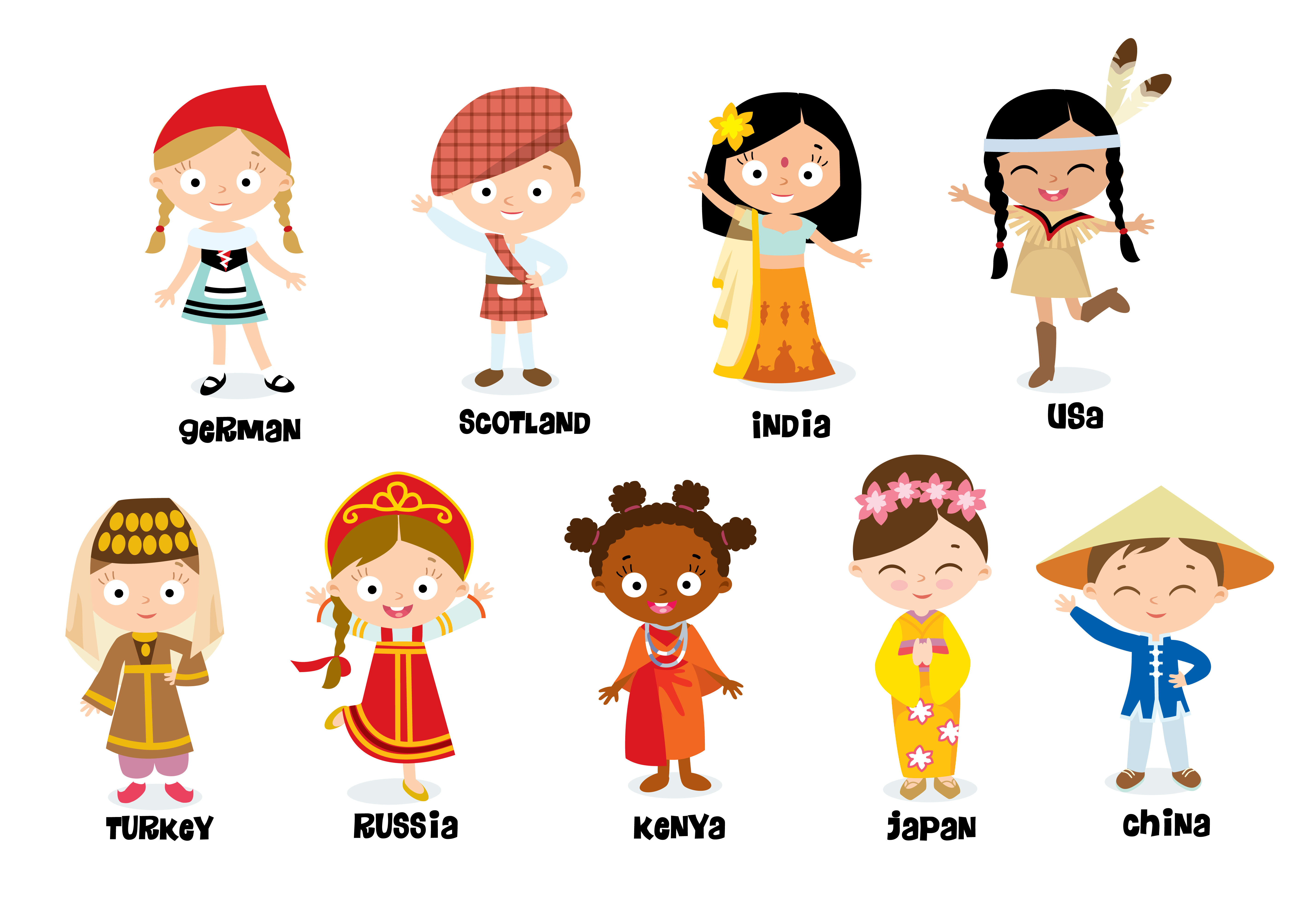Normal Tracing Shapes Worksheets Activities With Answers for Ages 4-8
9 filtered results
-
From - To
Explore our engaging "Normal Tracing Shapes Worksheets Activities With Answers" designed for children aged 4-8! These fun and interactive worksheets help young learners master shape recognition and fine motor skills by practicing tracing various geometric shapes. Each worksheet is thoughtfully crafted to foster creativity and enhance coordination while offering clear answer keys for easy reference. Perfect for home or classroom use, these activities promote independent learning while keeping kids entertained. Encourage your child's early education journey with our delightful tracing shapes worksheets and watch their confidence grow as they develop essential skills in a playful, supportive environment!
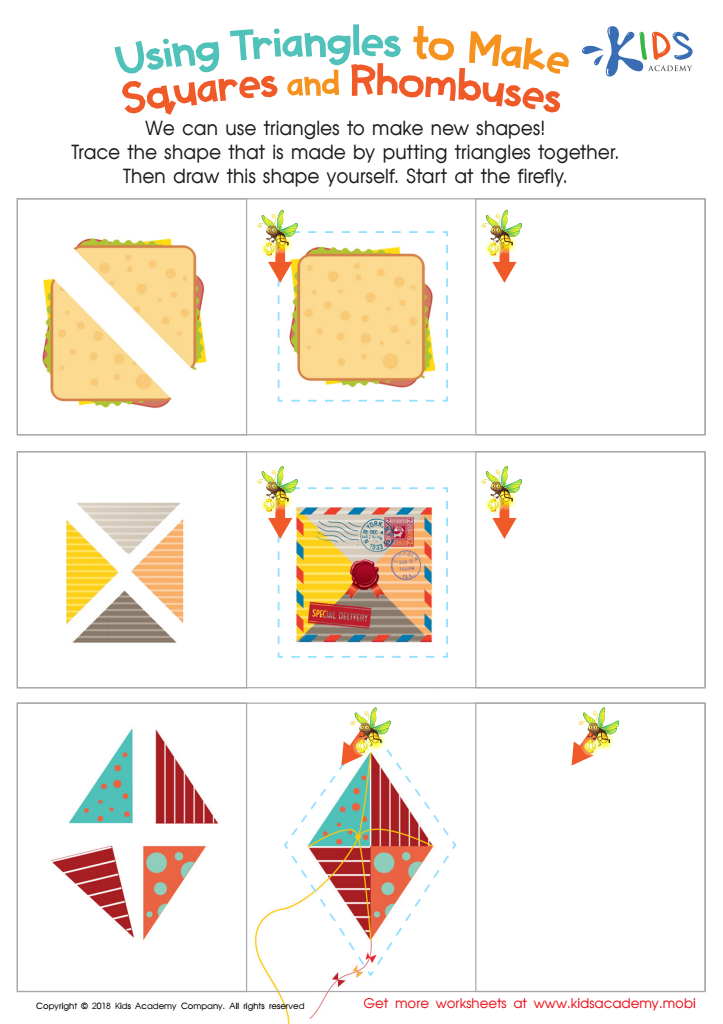

Using Triangles to Make Squares and Rhombuses Worksheet
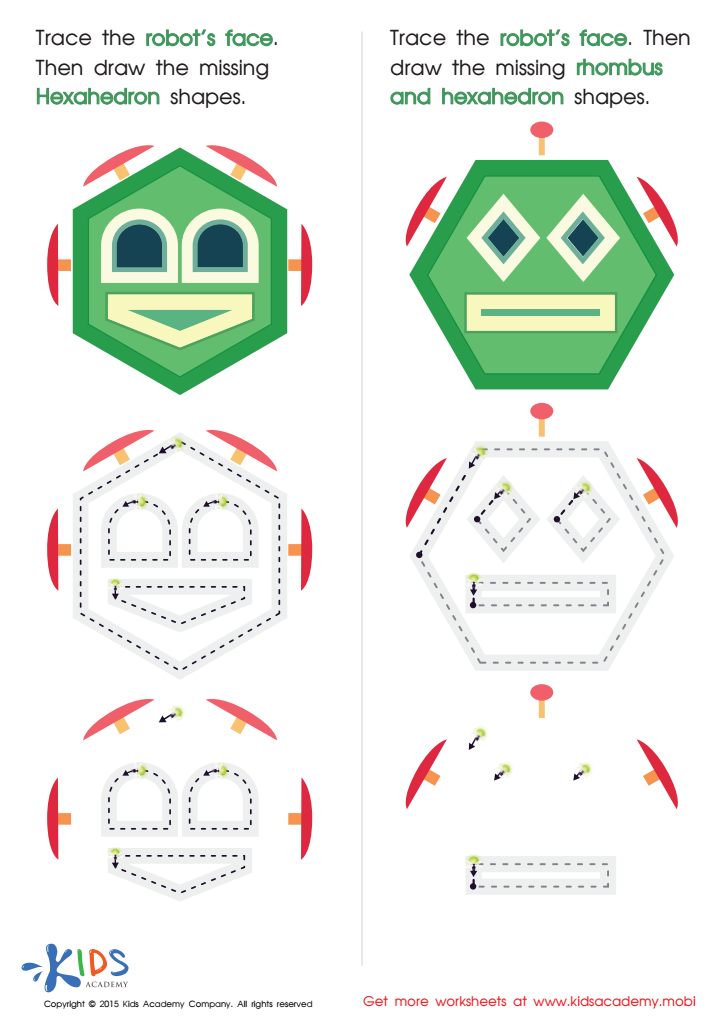

Practice Drawing Hexahedrons And a Rhombus Worksheet


Drawing a Triangle Worksheet
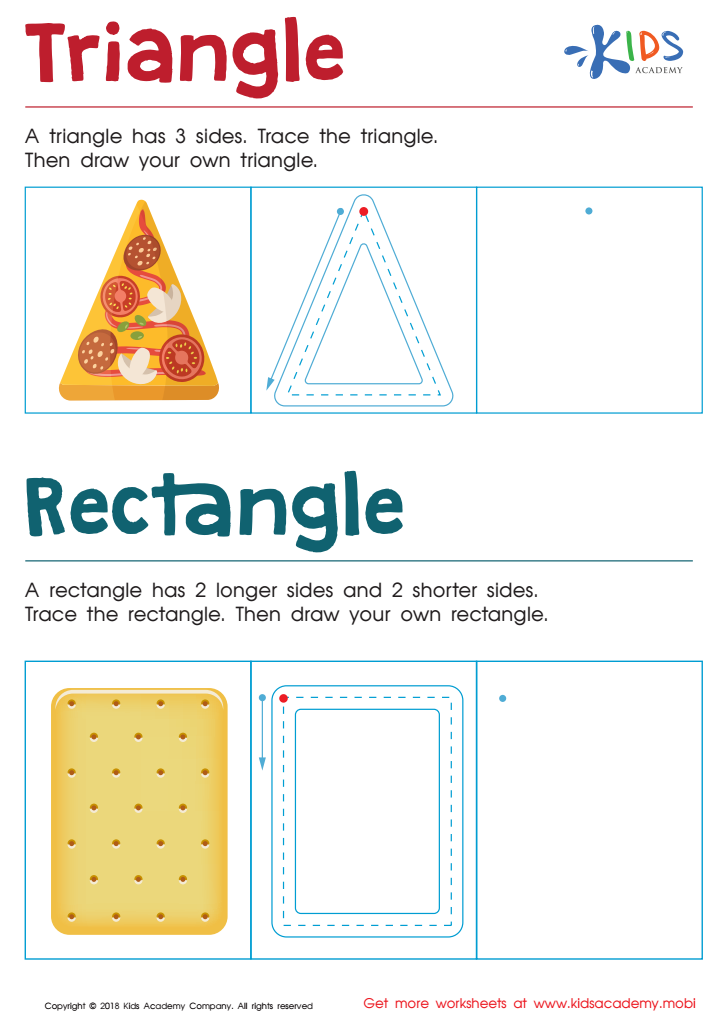

Triangle Rectangle Worksheet
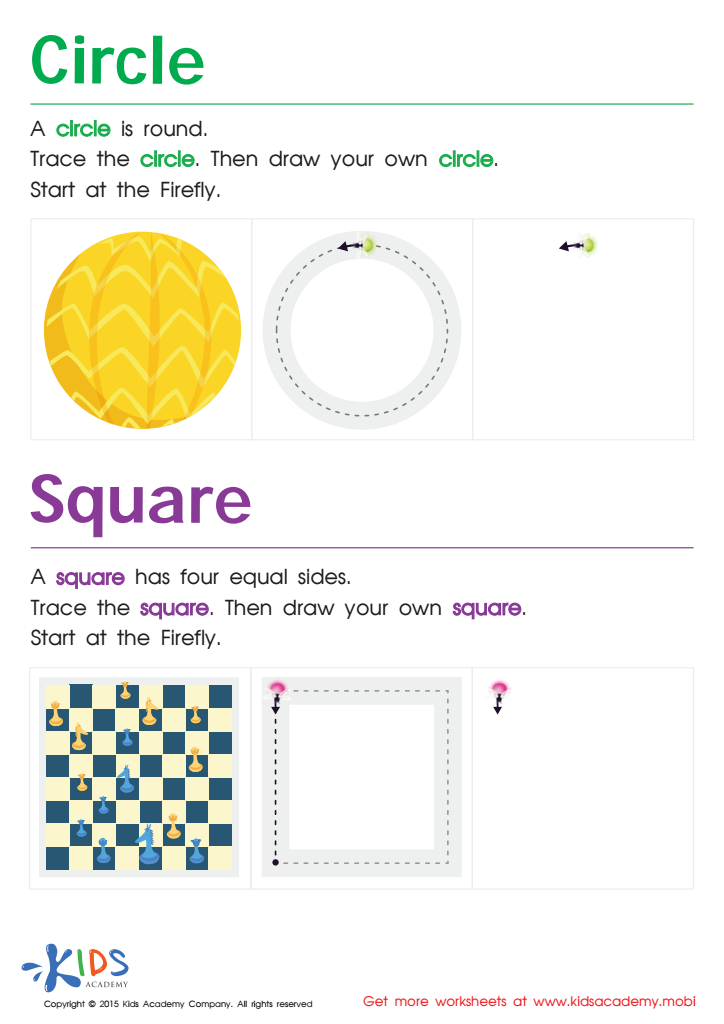

Trace And Draw a Circle And a Square Worksheet
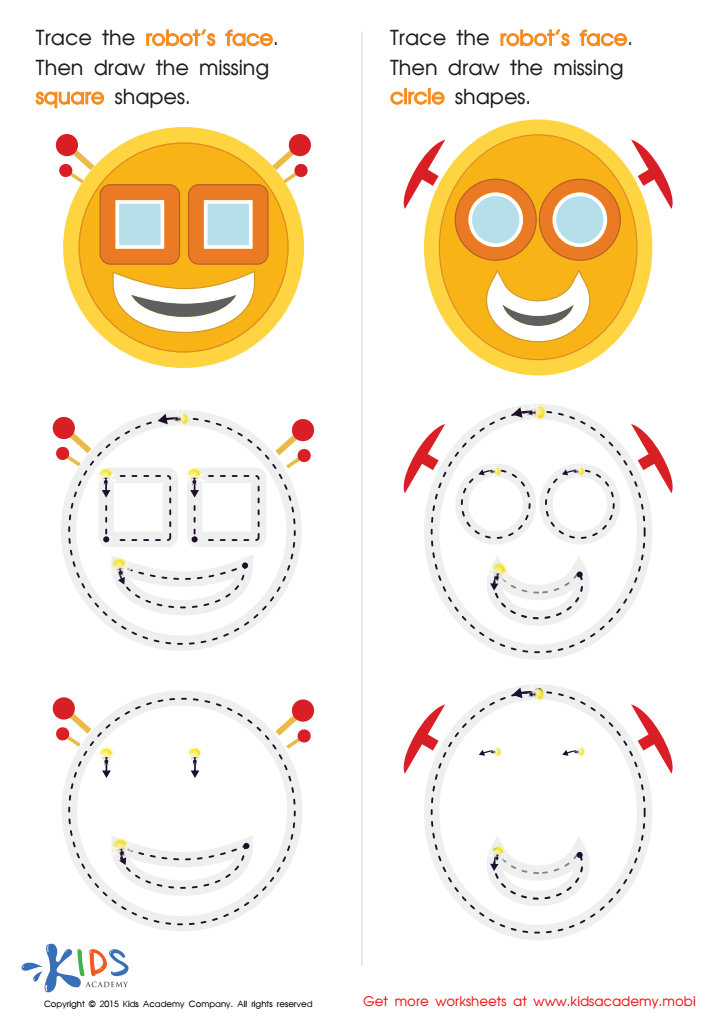

Practicing to Draw Circles And Squares Printable
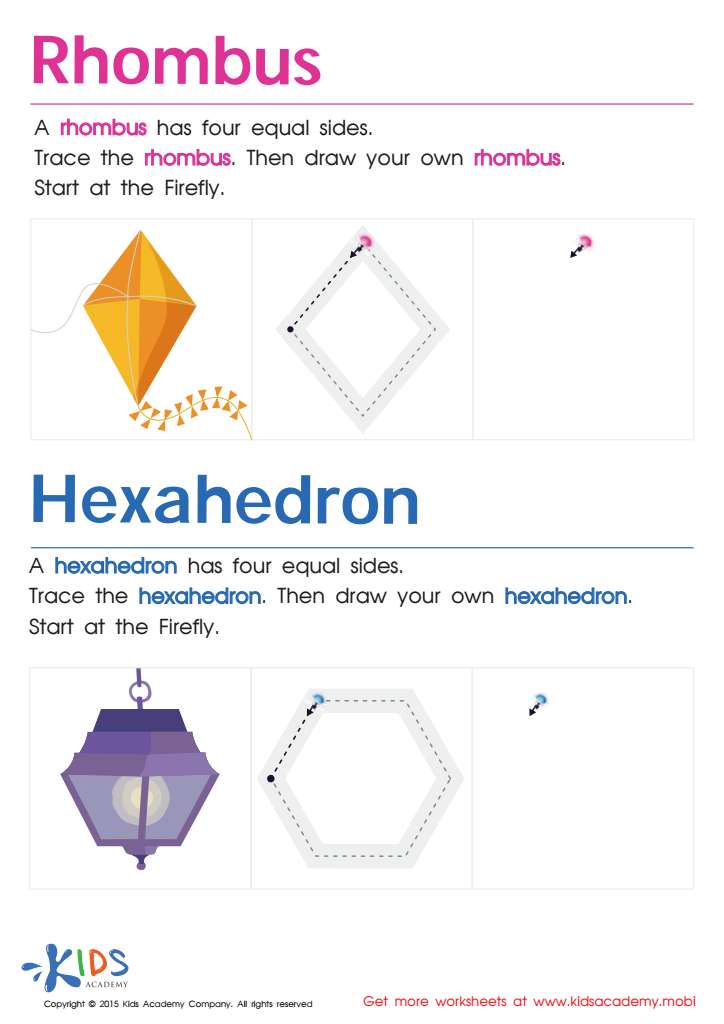

Draw a Rhombus And a Hexahedron Printable
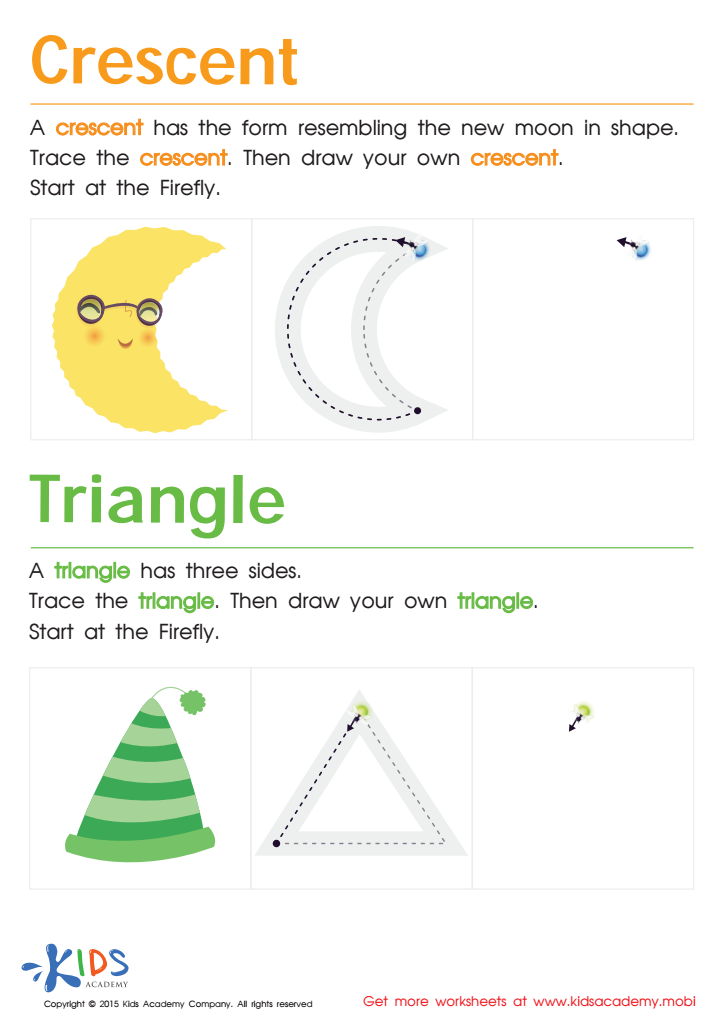

Learning to Draw Crescents And Triangles Worksheet
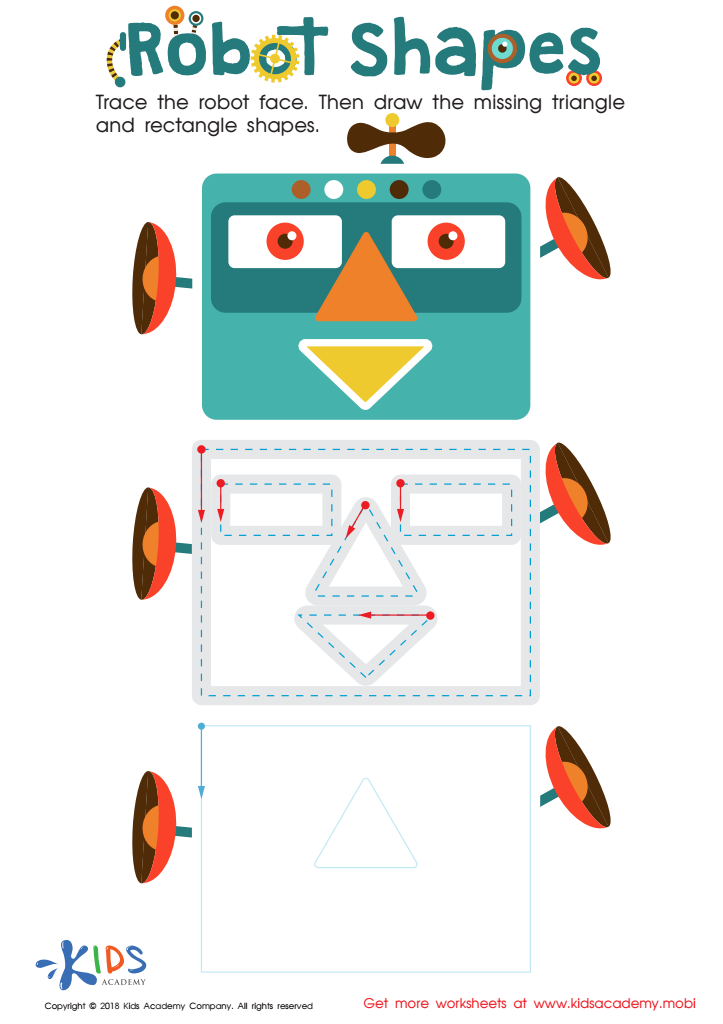

Robot Shapes Worksheet
Normal tracing shapes activities for children aged 4-8 are vital for early childhood development and learning. These activities promote fine motor skills, essential for tasks such as writing, drawing, and self-care. Tracing shapes helps children refine their hand-eye coordination and develop control over their hand movements, laying a foundation for more complex skills.
In addition to motor development, shape tracing activities contribute to cognitive growth. They introduce basic geometric concepts and help children recognize and differentiate shapes, which is crucial for early math skills. Understanding shapes also enhances spatial awareness, an important factor in problem-solving and reasoning.
Parents and teachers can use these activities as platforms for interactive learning. They encourage engagement, allowing kids to explore creativity while associating fun with education. Well-structured activities can also improve a child's focus and concentration, critical skills for their entire educational journey.
Moreover, tracing shapes provides opportunities for parents and teachers to discuss colors, sizes, and dimensions, integrating language development naturally. Engaging in these activities together strengthens the bond between adults and children and makes learning a shared enjoyable experience. Ultimately, parents and teachers should care about these activities because they support holistic development—motor, cognitive, and emotional—essential for children’s success.

 Assign to My Students
Assign to My Students



.jpg)

